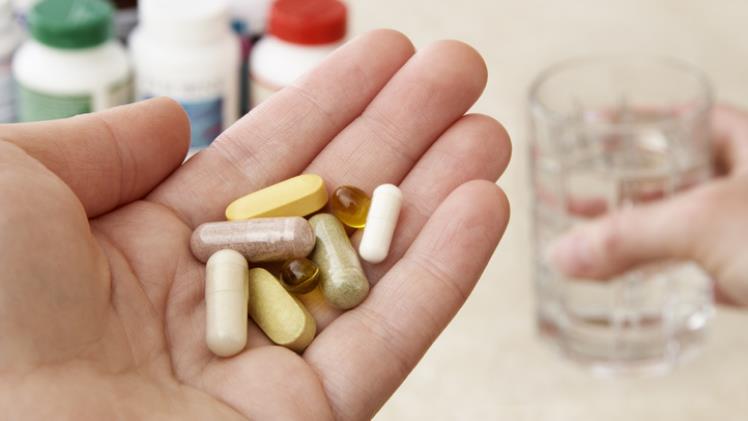Vitamins are a group of essential compounds that are needed by an organism in small quantities. Your body can produce the vitamins in very little amounts. Some essential vitamins cannot be synthesized in the body, which is why it needs to be supplemented through diet.
If an individual is deficient in certain vitamins, it can lead to numerous health issues in the mild to severe categories. People should consume all kinds of vitamin-rich foods to maintain a healthy balance of nutrients in the body and ward off any vitamin deficiency. Vitamins are broadly classified into two categories – Fat-soluble vitamins and water-soluble vitamins. Let us dive deeper into the subject.
What are Fat-soluble Vitamins?
These vitamins are soluble or dissolvable in body fat or lipids. These vitamins get assimilated by the human body with the help of dietary fats. The absorption of these compounds occurs in the intestinal tract which ultimately stores them in the liver and fat-storing adipose tissues for a long time, sometimes for months.
Certain vitamins like vitamin D, vitamin B3, and vitamin 9 are essential for male sexual health. These nutrients can also improve the symptoms of erectile dysfunction in men. Cenforce may treat erectile dysfunction in men.
Types of Fat-soluble Vitamins
Different types of vitamins have distinct functions, and their deficiency can contribute to various diseases. These vitamins with their functions and food sources are listed below:
1. Vitamin E
Its function is to act as an antioxidant to reduce oxidative stress and prevent the risk of widespread inflammation and various other illnesses. Its deficiency can lead to the weakening of muscles and damage of red blood cells due to fragility. Newborns with inadequate quantities of vitamin E are more prone to hemolytic anemia, a condition wherein the blood cells get destroyed.
Food that are excellent sources of vitamin E are eggs, wheat germ oil, sunflower seeds and oil, nuts, almonds, leafy greens such as spinach and collards, kiwi, vegetable oil, and peanuts.
2. Vitamin A
Its function is to ensure eye health, immunity, healthy muscle growth, reproductive health, and skin health. Its deficiency can lead to night blindness and xerophthalmia or hardening of the cornea of the eye, and keratomalacia.
Vitamin A-rich foods include carrots, leafy greens such as collards, kale, spinach, butter, cod liver oil, pumpkins, eggs, apricot, and milk.
3. Vitamin D
Its primary function is to aid the growth of bone tissues by helping the body with the absorption of calcium. It carries out the process of healthy mineralization of bones. Individuals deficient in vitamin D are prone to rickets, and loss of bone density which can lead to osteoporosis and fractured bones.
Foods that are rich sources of vitamin D include eggs, fatty fish, mushrooms, and beef liver. Your body can naturally produce vitamin D by exposure to UVB rays from the sun.
4. Vitamin K
It is an essential nutrient that helps in blood clotting or blood coagulation after a wound. Those who are deficient in this vitamin, are at risk of bleeding diathesis and hemorrhage. The best food sources of vitamin K are dark leafy greens, including broccoli, spinach, cabbage, and kale.
What are Water-soluble Vitamins?
Unlike fat-soluble vitamins, a regular supply of water-soluble vitamins is needed by your body as they do not stay in the body for long. These vitamins cannot be stored by the body for too long and they generally get eliminated via the urine.
Different Types of Water-soluble Vitamins
The recognized vitamins that are water-soluble are given below with their respective functions that affect the human body and their food sources.
1. Vitamin B1
This vitamin helps the cells with the conversion of carbohydrates into energy. Its primary function is to provide energy to the body, the brain, and the nervous system. It efficiently regulates muscle contraction. Lack of this vitamin can cause beriberi and Wernicke-Korsakoff syndrome. It can be found in foods such as leafy greens, oranges, brown rice, potatoes, sunflower seeds, yeast, cereal grains, eggs, pork, and liver.
2. Vitamin B2
Its chemical name is Riboflavin. Its role is to aid in the growth and development of the body cells. It is also an essential compound for the production of red blood cells. Its deficiency can lead to depression, blurry vision, swollen throat, fatigue, and skin issues.
Some foods that are excellent sources of vitamin B2 include yogurt, milk, eggs, cottage cheese, banana, fish, meat, and okra. Try including these foods more often.
3. Vitamin B3
It aids in the process of cellular growth and ensures skin health. Low levels of these vitamins can cause Pellagra which gives rise to intestinal problems, skin changes, and diarrhea. Foods that can increase the levels of these vitamins include leafy greens, carrots, lentils, nuts, fish, beef, milk, tomatoes, seeds, and tofu.
4. Vitamin B5
These are necessary for the production of red blood cells and the regulation of various hormones. Its role is to break down fats and carbohydrates for producing energy. Vitamin B5 deficient individuals may experience paresthesia or tingling and prickling sensations in the hands.
Good sources of vitamin B5 include yogurt, whole grains, broccoli, mushrooms, milk, nuts, liver, and avocado.
5. Vitamin B6
It helps the body with the production of antibodies which combats viruses, and infections. It prevents many diseases. It also aids in the regulation of normal nerve function. Low levels of these vitamins can cause peripheral neuropathy and anemia. Its healthy levels can be restored by consuming foods such as bananas, chickpeas, nuts, squash, and beef liver.
6. Vitamin B7
It is necessary for the metabolization of proteins, fats, and carbohydrates that ensures the health of your skin, hair, and nails. Its deficiency can cause dermatitis which increases skin irritation. Foods that prevent its deficiency are eggs, nuts, seeds, avocado, beef liver, and sweet potato.
7. Vitamin B9
Also known as Folate, it is essential for the formation of red blood cells, cellular growth, and function. Folate has a vital role during pregnancy, as it eliminates the risk of birth defects of the brain and spine in the fetus. The doctor recommends folic acid supplements during pregnancy. Some foods that can increase their levels include leafy greens, legumes, peas, sunflower seeds, peanuts, fresh fruits, and seafood.
8. Vitamin B12
This vitamin allows the optimal functioning of the central nervous system along with healthy metabolism. Lack of this vitamin can cause anemia and neurological disorders. Foods that contain these nutrients include milk and dairy products, fish, eggs, cereals, and cheese.
Click here to visit our website medmaxim.com to get more information.


